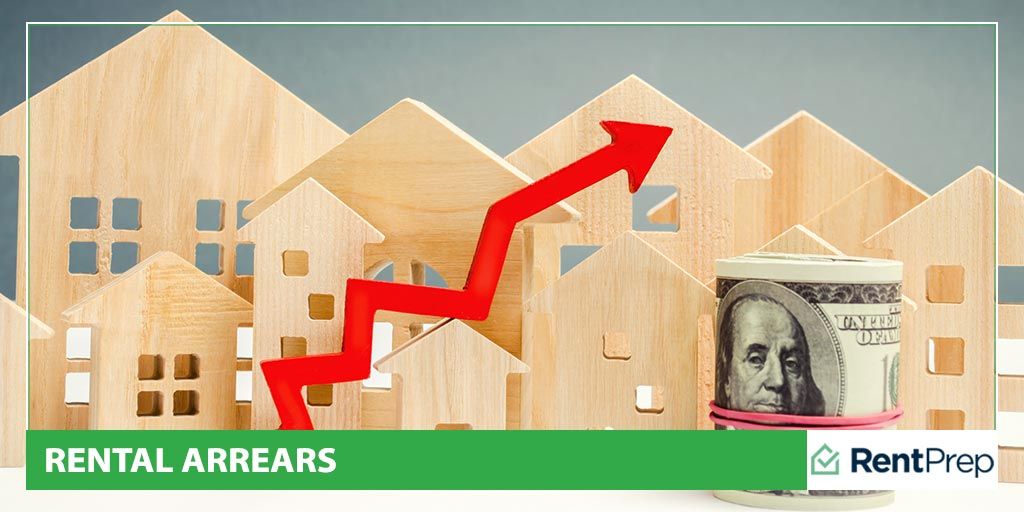
If you’ve got a tenant in rental arrears, you’re likely stressing about how it will affect your business in the coming weeks and months. How will you handle the late rent, and how fast do you need to act?
Rental arrears are not a good place for tenants to find themselves, but they sometimes don’t have any choice. Tenants don’t typically want to be late on rent. However, when they are, it’s up to you as the landlord to determine how to move forward. Will you allow them to pay late, make a partial payment or is it time to move to eviction?
As a business owner, you need to protect your investment. As a landlord, you want to treat your tenants with all the humanity with which you’d like to be treated. So how do you navigate this?
Today, let’s talk about rent arrearage, what rental arrears are, and how to handle late rent when your tenants just can’t catch up.
A Table Of Contents On Rental Arrears
Late rent is never pleasant to deal with, and many landlords have become familiar with its complications. Whether or not you understand why rent is late, you still need to know how to deal with it. Follow this table of contents to learn more:
- What Are Rental Arrears?
- Resolving Rent Arrearage: What’s Next?
- Preventing Future Rent Arrears
- FAQs: All About Rent Arrears
- Rental Arrears: How Late Rent Changes Your Business
What Are Rental Arrears?

Have you ever heard the term rental arrears?
If you’re a landlord in the United States, the chances are goid that this legal terminology isn’t something you’ve encountered. Rental arrears is not commonly used in American English, but this phrase does have meaning for landlords.
To be in rental arrears simply means a tenant is late on rent. Arrears refers to the amount of debt owed. The amount starts accumulating when the payment is due.
Most landlords just call this what it is: late rent. When rent isn’t paid on time, it is considered late, and the tenant is now in rental arrears.
Resolving Rent Arrearage: What’s Next?
Once a tenant is late on their rent, what happens next? Landlords often fear they will have to jump straight to eviction, but that’s often not the case. You may be able to find a better resolution by considering other options.
#1: Talk To The Tenant
The first thing to do is call the tenant. Ask them if they realize they are late on rent, and ask them if they have plans to pay. There’s a chance that they have simply forgotten or mixed up the days of the week.
Alternatively, you might find out that the tenant has had something occur that makes it impossible for them to pay rent. No landlord likes to hear that news, but it’s good to be on the same page with your tenant. You’ll want to start considering what to do next.
#2: Repayment Plan
Most of the time, landlords do not want to accept partial payments from tenants who are late on rent. Accepting partial payment can delay eviction proceedings and make it even harder to get paid in full.
However, there are some ways to circumvent this risk. If your tenant is sure they can pay next month but needs some time to catch up on payments, you may want to set up a deferred payment plan.
The language in this type of plan needs to be very specific. Outline how much money will be paid and at what time. Ensure the agreement stipulates that all future rent must be paid on time or the agreement will be void. Clarify what will happen to the rent money and how this affects potential eviction.
Setting up a repayment plan can be a reliable way to keep good tenants who are simply down on their luck. Many landlords have found success with this plan during COVID-19 lockdowns and job loss issues. Consider if this option can be an excellent way to balance your business with your tenant’s struggles.
#3: Renter’s Assistance
Keep a list of local renter assistance programs that might be able to help your tenants. If a tenant ever falls on hard times, you can direct them to these organizations and help them set up an assistance package to make ends meet until things normalize. This will help both you and your tenant move forward with stability.
#4: Eviction
Sometimes, eviction is the only viable option. A tenant who cannot pay rent and doesn’t have any wherewithal to plan how they will catch up cannot be a good tenant. In this case, follow your state’s rules on eviction to start the process as soon as possible. It can be time-consuming, but it will be worth securing your rental investment.
Preventing Future Rent Arrears
After dealing with nonpayment of rent and late rent payments, most landlords will want to do everything they can to avoid this situation altogether. What can you do to prevent tenants from ending up in rent arrears in the future?
Ideally, you’ll be able to take some time to address the following and improve your overall rental system to make it less likely for these situations to occur:
- Ensure your rent amount is priced competitively and appropriately for the area.
- Provide all tenants with clear rental payment due dates, instructions, and a guide for what to do if they cannot pay.
- Keep open communication with your tenants so they will be comfortable talking to you about rent payment issues sooner rather than later.
- Review local and state rules about late rent, what to do, and how you can address it in your area.
- Considering using rent payment apps to make payment easier for tenants.
- Improve your tenant screening system so that you’re getting better tenant fits.
Finding Your Next Tenant

If your late rent is resolved through eviction, you’re going to be looking to fill that vacancy as soon as possible to get your finances back on track. However, don’t rush into renting the property out to just anyone. It’s key to reducing the risk of future arrears by doing thorough tenant screening every single time you rent out a property.
Landlords have found great success in using third-party tools to complete tenant screening. Here at RentPrep, we have a variety of complete tenant screening options at affordable prices for your convenience. Our goal is to help landlords like you find the right tenants for their properties with less hassle than ever before.
Are you ready to give us a try? Learn more about our tenant screening packages and pricing today.
FAQs: All About Rent Arrears
What does it mean to be in rent arrears?
Being “in rent arrears” is a legal phrase used to describe being late on rent. Tenants in arrears are behind on their rent payments, and they could face eviction depending on their lease agreement and the situational terms.
Specifically, “arrears” are amounts of money owed by one party to another. The phrase “in arrears” is used with more than just rent. From phone lines to water payments, these bills can all be in arrears if the payments are not made in full and on time.
Many experienced landlords in the United States haven’t heard this term because it is not used as commonly in American English as in other English-speaking countries. Still, this phrase may come up when you’re working in the real estate business, so understanding the meaning of the terminology is important.
How are rent arrears calculated?
Late rent is calculated based on the day that rent is due each month. Most landlords have rent due on the 1st of the month, but this may vary if your lease agreement designates a different date for payment.
If the 1st of the month falls on a weekend or a holiday, most jurisdictions require that the rent be considered on time through the next business day. Some landlords may also have a grace period of up to five days when late rent will be accepted as an on-time payment. After that period passes, however, the tenant is in rent arrears.
The monthly payment is considered in arrears as soon as the grace period or payment day passes. If the tenant does not pay all month and the first of the following month passes, the tenant would be considered to be two months in arrears. You could also say that they are two months late on rent if you want to use American English terminology.
How can I avoid renting to tenants with a history of late rent?
The best way to avoid renting to tenants who have a history of being late on rent is to screen all rental applicants thoroughly.
Make sure that you do more than just collect a rental application. Call the references listed, run a background and credit check, and connect with former landlords. Investing time into these checks or paying a service to do them for you will reduce the risks associated with renting property.
Tenants with strong credit have a history of on-time payments, and they are likely to do their best to pay on time at your rental property too.
Additionally, make sure you also confirm that tenants make enough to cover rent and then some each month. Most landlords want to rent to tenants who make at least three times monthly what the rent costs, to ensure they can afford the local cost of living.
How long do I have to wait to pursue eviction?
Due to how landlord-tenant laws are structured, the amount of time you must wait to pursue eviction due to nonpayment of rent depends on local and state laws. In most cases, you will need to wait at least two weeks to be able to start the eviction process, but you can often send a late notice much sooner than this.
To learn more about the eviction laws in your state, take a look at our state-specific landlord-tenant law pages. You will be able to learn more about eviction, when it can be applied in your area, and what terms apply. You want to be sure that you follow the local code to ensure the process isn’t hampered by unnecessary delays.
Am I legally allowed to evict a tenant during COVID-19?
There is no doubt that the rental industry has been severely affected by the ongoing COVID-19 pandemic, and that statement holds true for both landlords and tenants. Eviction holds were put into place at both the state and national levels during the height of the economic strain caused by the pandemic, to prevent people from being kicked out when they were losing their income.
In most areas, however, these restrictions are no longer in place as we enter a new normal. There are very few areas where there are still eviction moratoriums. These typically only apply to current renters who have pending rental assistance applications or make significantly less income than the median income in the area.
In Virginia, for example, some renters seeking short-term rent relief related to COVID-19 may not be able to be evicted for nonpayment of rent. Check the rules in your area to find out if there are any COVID-19-related protections still in place.
If you have a tenant who is not able to pay rent due to lost work directly caused by the COVID-19 pandemic, do what you can to work with them and direct them to any renter assistance programs you know of that may be able to help them make ends meet and pay as soon as possible. This will be easier than eviction, and you’ll feel better about the outcome if you can find an alternative solution in these difficult times.
Rental Arrears: How Late Rent Changes Your Business
Being a landlord is a difficult job, and it gets even harder when rent is not being paid by one of your tenants.
While your business may have the finances to handle this lack of income for a long time, it cannot and should not go on indefinitely. It’s important to address renters in arrears as soon as possible, even if just to find out when you can expect payment.
Remember that you have more than one option:
- Talk to the tenant; when do they think they will pay?
- Make sure to send them notice as soon as permitted in your area.
- Set up a deferred payment plan if that will be a good solution for both parties.
- Pursue eviction as needed.
By acting quickly, you will help both your business and your tenant be more secure. The situation is better for everyone involved when you know what to expect, what is happening next, and where things are headed. Don’t delay handling late rent payments. The longer you wait, the harder it will be to get things back under control.

